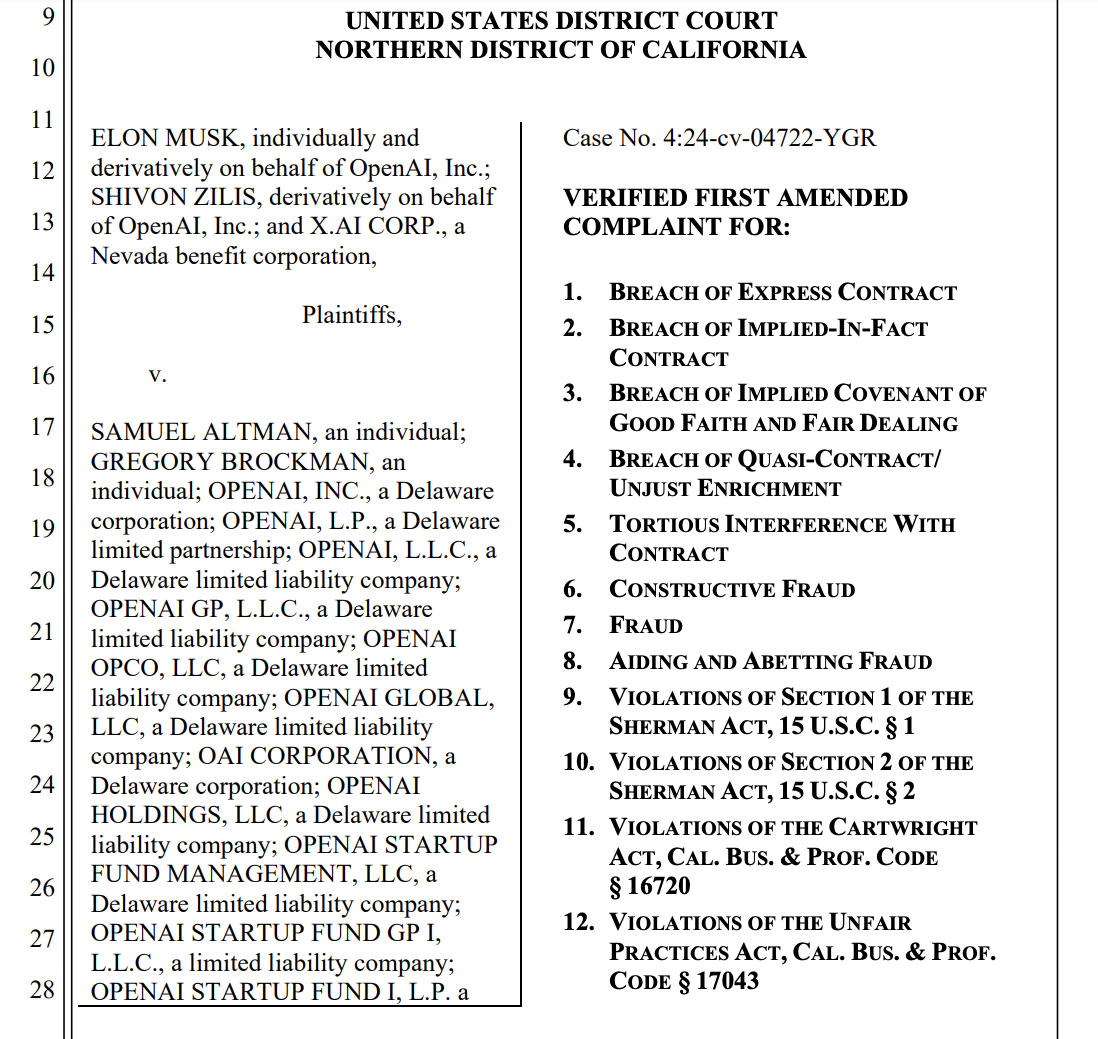Elon Musk has named Microsoft and other stakeholders in his ongoing lawsuit against OpenAI. According to court documents, Musk claims that OpenAI attempted to implement a cryptocurrency in 2018, but he opposed the proposal.
OpenAI representatives published years-old correspondence with Mr. Musk, proving he was well aware of their struggle to fund research that requires huge capital.
Elon Musk and OpenAI face off
During times send profile In court recently, Elon Musk listed a number of new defendants in his ongoing lawsuit against the prestigious artificial intelligence company OpenAI. Musk mentioned OpenAI’s former associates and investors in this amended lawsuit, including Microsoft. He accused the company of abandoning its commitment to non-profit, the main reason Musk initially invested.

Since OpenAI abandoned its nonprofit status, the company has publicly sought to achieve a valuation of $150 billion. This is an incredible value for any company, even one with ambitions to transform the entire technology industry.
Furthermore, according to the document Courtesy provided by Musk’s legal team, OpenAI once attempted to launch an ICO in 2018:
“In January 2018, just months after showing ‘interest’ in September 2017, Altman proposed a fraudulent ‘ICO,’ or initial coin offering, that would have OpenAI, Inc. will sell its own cryptocurrency. Musk also dismissed the idea, arguing that ‘it would only lead to a huge loss of credibility for OpenAI and everyone involved in the ICO,’” according to Musk’s team.
In other words, Musk’s lawyers argue that OpenAI founder Sam Altman has always prioritized making money over serving the public interest. Musk affirmed that he joined the project with the goal of operating it as a non-profit organization and then left because of differences in thinking. The company has generated huge revenue since going public, receiving $6.6 billion in funding this past October.
However, the company firmly denies these allegations. This March, the company announced recounts communications between Musk and company leaders, spanning nearly nine years.
During these discussions, OpenAI members emphasized the capital-intensive nature of artificial intelligence development and declared that a shift toward profitability was “inevitable.” In other words, Musk knew this years ago.
“We feel sorry that things have come to this for someone we admired deeply — someone who inspired us to dream higher, then told us we would fail, to start a competitor, and then sued us when we began to make significant progress toward OpenAI’s mission without him,” a statement from the company reads.
Up to now, the prospects for success of the lawsuit are still quite dim. Musk abandoned this lawsuit in July, before reopening it and listing new plaintiffs. The move is likely meant to annoy OpenAI, rather than win a large settlement or significantly change the company’s business direction.
